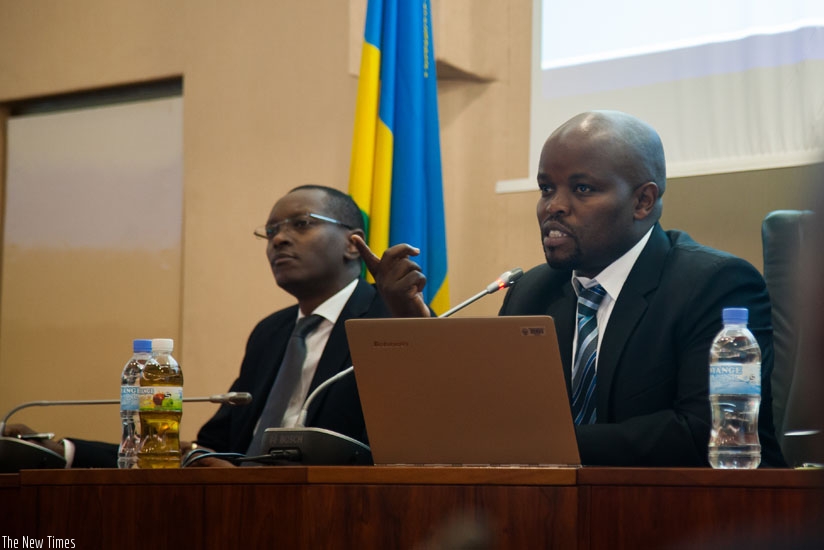Efforts to build, spread, and use information and communication technologies (ICTs) to deliver and access services should be strengthened to ensure that Rwanda meets its development goals, senators have said.


Efforts to build, spread, and use information and communication technologies (ICTs) to deliver and access services should be strengthened to ensure that Rwanda meets its development goals, senators have said.
The legislators made the call, yesterday, during a consultative meeting on ICT development, which the senatorial Standing Committee on Economic Development and Finance organised at the House.
ICT is a common term used to describe any communication device or application encompassing radio, television, cellular phones, computer and network hardware and software, satellite systems, among other innovations, as well as various services and applications associated with them such as videoconferencing and distance learning.
Rwanda, which seeks to become a knowledge-based economy by the year 2020, has placed the use of ICTs at the centre of its development and transformation agenda.
With the country currently at an advanced stage of implementing its ICT development plans, legislators called for more efforts to address the most pressing challenges facing the sector.
They include the management of cyber-security, quality training for young people in the ICT sector, ensuring more access to the Internet and electricity for all, as well as monitoring the quality of services offered using ICTs.
"There is need for sensitisation and advocacy among all stakeholders to advance the development of the ICT sector,” said Senator Jacqueline Muhongayire, the chairperson of the committee.
Government’s target
Speaking at the Senate, yesterday, the Minister for Youth and ICT, Jean-Philbert Nsengimana, said the target for the Government is for every Rwandan to access Internet by the year 2020.
He called on all stakeholders in the ICT sector to work towards helping Rwandans to understand its benefits and train them on how to use technology, adding that the Government has put in place the right infrastructure needed to develop the sector.
"There is a lot that Rwanda has achieved in the ICT sector. I don’t see any service that wouldn’t be delivered through ICT,” the minister told the senators.
Nsengimana urged all Rwandans to start demanding services like the Internet while using public amenities because they are already paid for by the government and part of the package for different products that are sold on the market such as transport on buses and dining at restaurants.
"We want to ensure that all Rwandans access internet and we want the Rwandan youth to have advanced skills in ICT,” he said during an interview with journalists, yesterday, after the meeting at the Senate.
At the gathering, different stakeholders in the ICT sector, such as private ICT service providers, were invited to pitch their ideas on how to develop the industry.
Many urged the Government and the country’s research and education institutions to invest in quality training and research to ensure that investors in the sector get both skills required to develop it and information needed to drive businesses.
At the heart of challenges in the use of ICTs is the increasing threat of cybercrime, which experts say can be dealt with through adequate training of Rwandan ICT professionals to respond to it.
"Cybercrime is part of today’s world. We should stop looking at it as a monster but as something we can teach our students about so that they can learn how to ensure our cyber-security,” said Peter Maridadi, the chief executive of local Internet service provider, ISPA.
The Senate will submit the resolutions from the meeting to the government as a contribution towards the advancement of the ICT sector, which is regarded as a pillar for the country’s socio-economic transformation.
editorial@newtimes.co.rw


